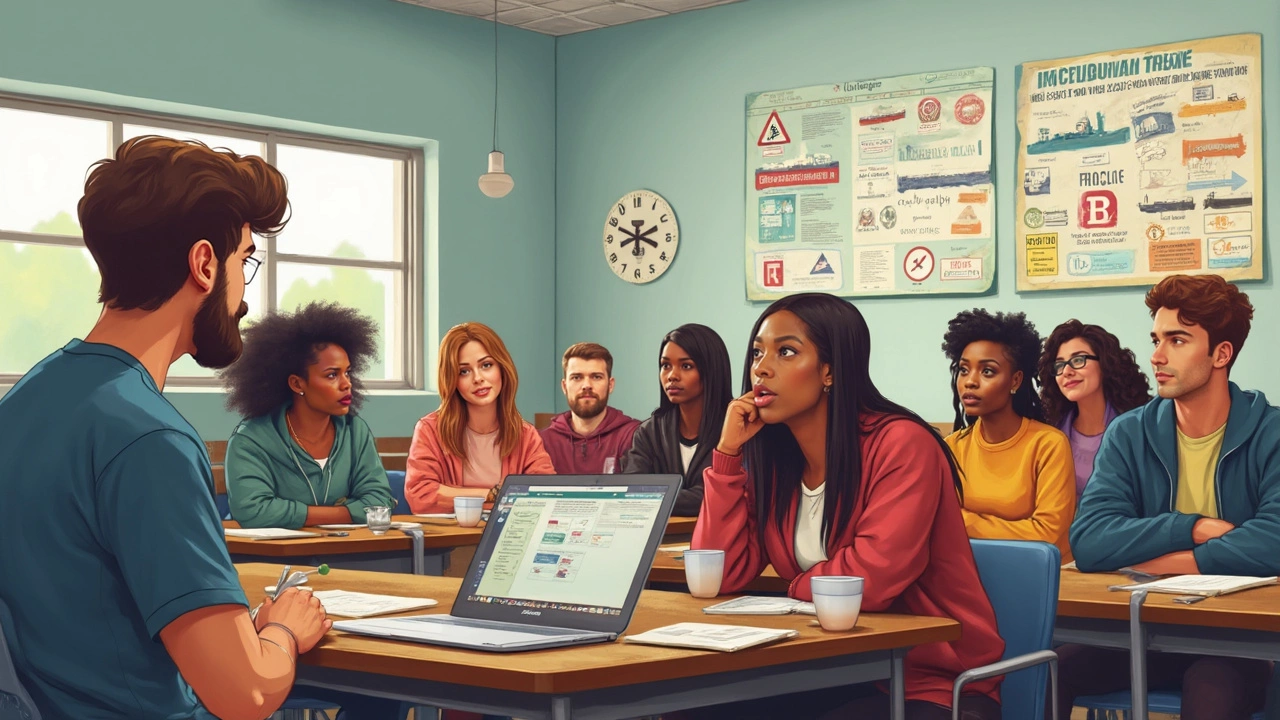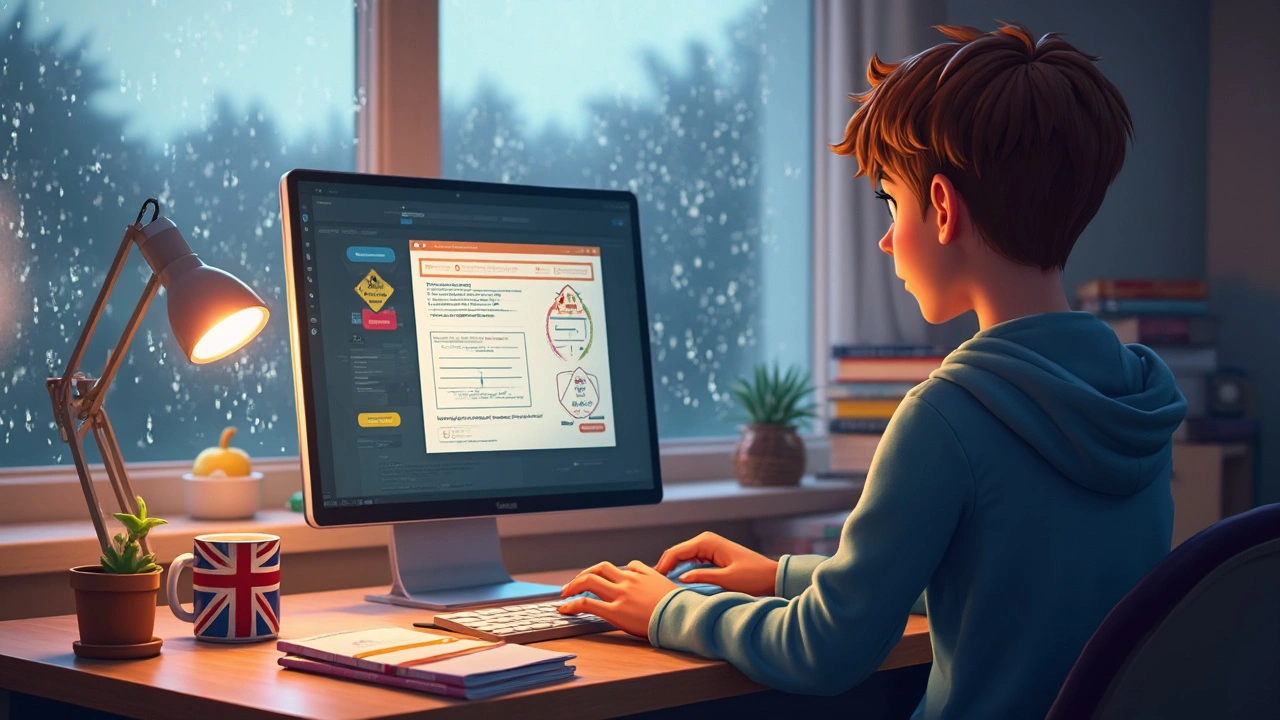Stuck at your desk and wondering if you can breeze through the Virginia driving test online? It's a tempting thought, considering how booking almost anything else has moved to the web. The short answer: you can't take the actual road skills test online, but there's more to the story.
The Virginia DMV lets some folks take the knowledge test (the written one) by computer at an official site. In some cases, especially for teens in driver’s ed programs or adults taking defensive driving, there are online options for the
- Is the Virginia Driving Test Available Online?
- Who Qualifies for Online Driving Exams?
- Booking Your Test: Steps and Tips
- What to Expect on Test Day
Is the Virginia Driving Test Available Online?
If you’re hoping to score your driver’s license in Virginia just by sitting at your laptop, you’re not alone. Here’s the honest answer: for now, you can’t take the actual driving (road skills) test online. The in-person part is still a must, mostly because someone from the DMV needs to see you actually manage a real vehicle in real traffic. No video game shortcuts here.
But what about the written (knowledge) test? That’s where things get interesting. The Virginia driving test has two main parts: the knowledge test and the road skills exam. While the knowledge test can’t be done at home, you can take a computerized version at official Virginia DMV offices or DMV-approved testing centers. Some high schools and private driving schools also have special setups for students to take the knowledge test on-site, using a computer.
If you’re under 18, there’s an online driver education course which finishes with a test that can be taken online if your school or course provider is approved. But for adults and anyone needing the official test for a license, you can’t complete it from your couch—yet.
Check out the simple breakdown below:
| Test Component | Can You Take Online? | Where It's Offered |
|---|---|---|
| Knowledge (Written) Test | No (not from home) | DMV office, approved test sites, some schools |
| Road Skills Test | No | DMV office or designated road test locations |
| Driver's Ed Final Exam (teens) | Sometimes | Approved online providers |
So, unless the rules change soon, all main licensing exams need to be supervised, officially proctored, and taken outside your house. It’s worth checking the DMV site now and then, though: the rules around testing are always evolving, and there’s a chance home testing could be a thing in the future with tighter security tech.
Who Qualifies for Online Driving Exams?
Here’s the deal: In Virginia, you can’t take the actual road skills test online, but you do have the option to take the knowledge exam using a computer, and sometimes that process feels pretty close to online. For most people, the classic at-home test with a cup of coffee isn't happening. You’ll need to go to a DMV office or an approved testing location for the Virginia driving test unless you fit into a few special groups.
If you’re under 18 and enrolled in a state-approved driver’s ed course at your high school, there's good news. Many public schools now offer the ability to take the knowledge test online right at school. The DMV has a partnership with schools for this exact reason, and it’s made the process super convenient for teens. Some private driving schools with DMV approval may also have this setup.
For adults, especially those taking license reinstatement or defensive driving courses, there are certain online providers approved by the DMV to offer the knowledge exam remotely. But, you can’t just pick any website. You have to stick with the vendors the DMV has already vetted, and you’ll probably have to use special software to monitor your test.
- You must have a valid social security number or proof of legal presence.
- You’ll need to complete driver’s ed if you’re under 18.
- You can’t have any open suspensions or holds on your DMV record.
- Some testing sites may require you to schedule in advance even if it feels “online.”
Check the DMV’s official website for the list of schools and online providers allowed for the knowledge exam. If you aren’t eligible for these online setups, you’ll be taking the knowledge exam in person at a DMV office or authorized testing center.
| Group | Location | Eligible For Online? |
|---|---|---|
| Teens (under 18, enrolled in driver’s ed) | School or DMV-approved provider | Yes, sometimes at school |
| Adults (license renewal/defensive driving) | Online DMV-approved vendor | Yes, if on the DMV list |
| All others | DMV office/testing center | No |
If you’re not sure where you fit, the easiest move is to call your local DMV or check their website before you try to register. It saves you headaches later. Plus, rules change fast—what’s true in June 2025 might not stick around forever.

Booking Your Test: Steps and Tips
The process isn’t complicated, but there are some things you want to get right or you’ll be waiting weeks. In Virginia, you need to book both the knowledge and road skills tests—don’t just show up hoping for a free spot. The Virginia driving test booking is handled through the Department of Motor Vehicles (DMV), and everything runs on appointments now.
Here’s exactly how to get your slot:
- Head to the official Virginia DMV website. There’s a specific portal for scheduling driver license appointments. Don’t trust third-party sites trying to charge you extra.
- Select your local DMV office. Bigger cities fill up way faster, so check surrounding counties if you can travel a bit.
- Pick "Knowledge Test" for the written portion or "Road Test" if you’re ready for behind-the-wheel. You need to pass the knowledge test before you can schedule the road test—no skipping ahead.
- Choose from available time slots. Early mornings and mid-week tend to have fewer people (and less stress).
- Enter your personal info: full legal name, DMV customer number (if you’ve visited before), and sometimes a valid email address for appointment reminders.
- Double-check everything and confirm. You’ll get a confirmation email or code—save it! You’ll need this if you have to reschedule.
Here’s a quick look at typical DMV wait times around Virginia (updated for 2025):
| Location | Average Wait (Weeks) |
|---|---|
| Richmond | 2–4 |
| Virginia Beach | 3–6 |
| Roanoke | 1–2 |
| Charlottesville | 2–3 |
Pro tip: If you cancel, DMV will make you wait before rescheduling, especially if you’re a no-show. Plan around sports, school, or work so you don’t lose your spot.
For teens doing driver’s ed, some private driving schools can handle the booking for you—they just need your consent and paperwork signed. Adults should still book themselves through the DMV.
If you need special accommodations (like translation services or extra time for the written test), ask when you book. The DMV staff can’t help last minute if you spring it on them the day of.
What to Expect on Test Day
Test day at the Virginia DMV is usually a mix of nerves and excitement—no way around it. You’ll need to show up in person for the road skills segment, even if you aced your online knowledge test. The DMV is strict about checking ID and paperwork, so don’t leave home without your learner’s permit, completed forms, and proof of residency.
- Arrive early, at least 15-20 minutes ahead of your appointment. Parking lots at busy DMV locations can fill up fast.
- You’ll check in with a clerk or at a self-service kiosk, then wait for your turn. Use this time to review any last-minute tips or calm your nerves.
- The vehicle you bring must pass a safety inspection—think working headlights, horn, turn signals, seatbelts, and valid registration/insurance cards. If it fails, you don’t get to test.
Once it’s your turn, the examiner will hop into the passenger seat, clipboard in hand. They’ll walk you through the instructions—no phones or distractions allowed. Expect to demonstrate basic maneuvers:
- Three-point turns
- Parallel parking
- Sudden stops
- Backing up in a straight line
- Following traffic signs and signals
- General awareness and safety decisions
If you’re worried about what counts as a “fail,” here’s a quick breakdown of common mistakes:
- Missing stop signs or running red lights
- Not using mirrors or blind spot checks
- Rolling stops
- Unsafe lane changes
According to recent Virginia driving test data, the fail rate for first-timers is about 37%. Most slip up on parallel parking or right-of-way confusion. The official DMV says:
"We recommend all candidates get familiar with actual road conditions—practicing skills like turns, safe following distance, and parking in various environments increases your chances of passing."
Here’s a quick look at what you’ll need to bring and expect, all in one table:
| What to Bring | What to Expect |
|---|---|
| Learner’s permit | DMV staff will check all your documents |
| Proof of identity & residency | Safety inspection of your car |
| Insurance & registration | Examiner joins you in car |
| Completed driver’s ed certificate (if under 18) | Test lasts about 15-20 minutes |
Pretty straightforward. No surprises if you’re prepped. If you don’t pass, you can usually book a retake after 15 days, so keep that in mind as you’re heading in.

